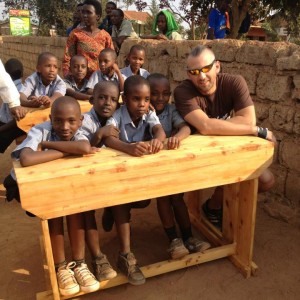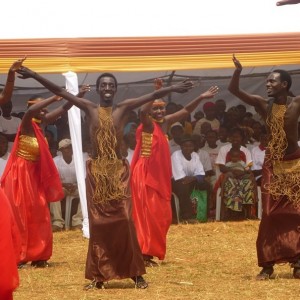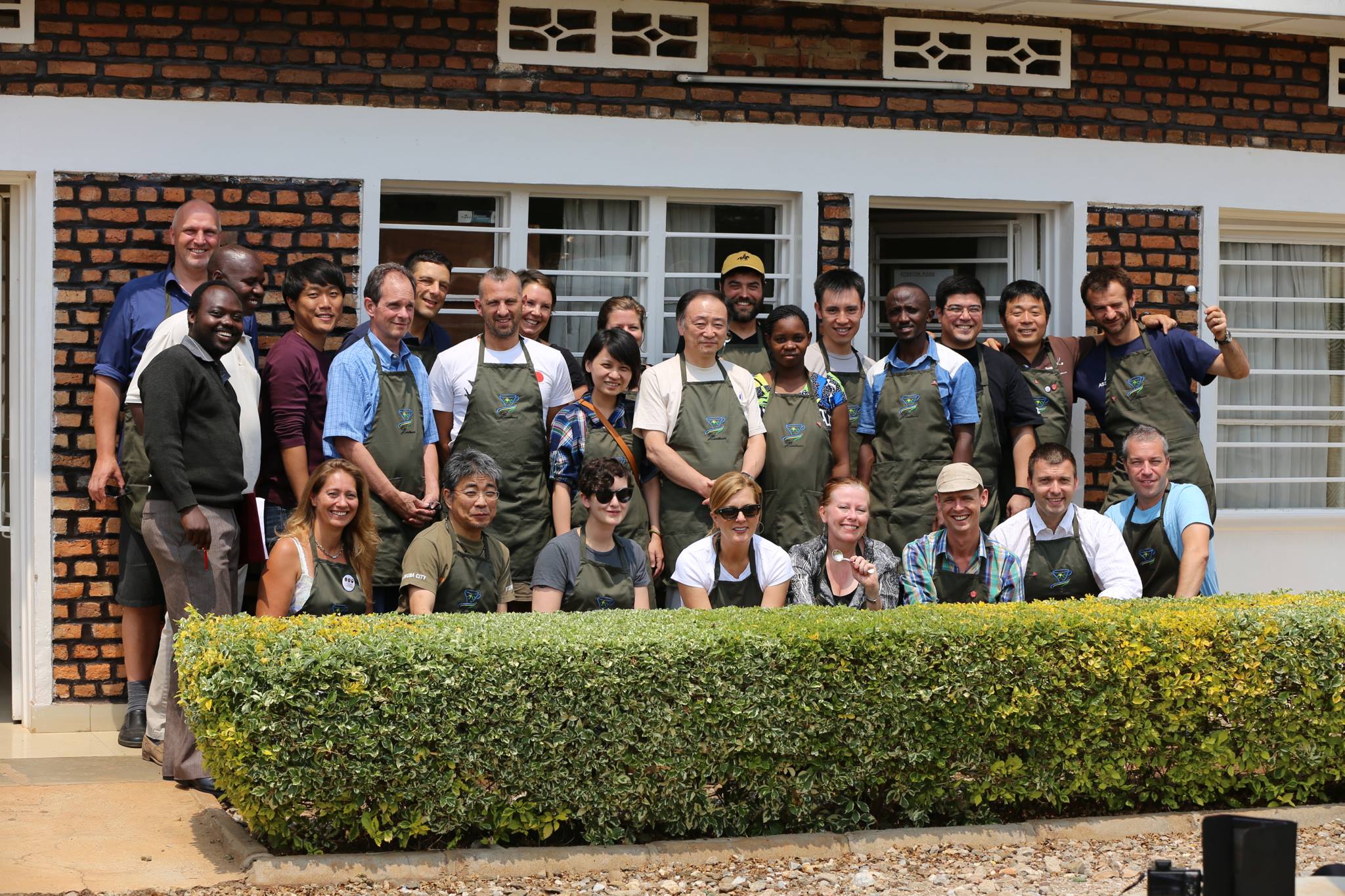(The Rwanda COE Judges Panel; Image provided by Scott Conary – Carrboro Coffee Roasters)
I saw earlier this week that Starbucks has canceled their #RaceTogether campaign. Sprudge posted polls asking if people we’re interested in engaging with race relations with their barista, and, at the time I looked, feedback said “absolutely not” (85% “no”).
Perhaps what they needed to do was change the approach.
We enjoy the casual certification that says it’s okay to drink this, but most of us aren’t worried about it.
Yet, looking back at “Your Coffee Landscape (Part1), I think there may be some space for a conversation. After all, who can say Starbucks had a bad idea? Race is still an issue, especially here, but what I think we can, and should be talking about, is a little different.
So originally I promised Tuesdays for coffee news. I want to stay on top of things current and happening in our community and around the globe. Today we start to look a little more globally. Today we take a look at Rwanda and Burundi.
Something came across my desk, well it would if I had one. Something came across the bar? (more like my living-room couch)
Anyway, someone told me that Rwanda is using coffee to improve their economy.
I about returned a lesson in economics: increase in production of specialty coffee does assume improved economies for largely coffee producing countries. (Small scale growth but growth for sure.)
I stand corrected though. The story also goes back a bit. Not long ago, you can find that Rwanda’s government actually ran coffee production. Can you imagine what our coffee would look like if it was government run? What if the DMV was your only spot for a morning cup?
Well bad to worse when there was the Civil-War conflict of 1990-1994 with genocide within its borders. There’s a great article from NPR where they interviewed a journalist, Jonathon Kalan, from Rwanda. He comments that “After the genocide, the coffee industry was privatized. This opened up new markets and avenues for selling coffee.”
He talks about how the movement for farmers to learn and grow premium (specialty) coffees was something called PEARL. “PEARL is a collaboration among Texas A&M, the U.S. Agency for International Development and Rwanda’s Ministry of Education,” said Kalan.”

Scott with some of the children who received classroom desks donated by COE international judges (imaged provided by Scott Conary – Carrboro Coffee Roasters)
Where this ends is exciting. SPREAD (Sustaining Partnerships to Enhance Rural Enterprise and Agribusiness Development), was the next phase of the PEARL program in 2006. They discussed how an outcome was the first sponsored Cup of Excellence program in Rwanda.
Cup of Excellence is a way for farms to gain attention and receive fair pricing for their premium coffee. In fact Carrboro Coffee Roasters will have it in April in accompanying a special event on April 16, along with a screening of A Film About Coffee, which we just previewed!
Scott Conary, Owner of Carrboro Coffee Roasters, has had the opportunity to judge various Cup of Excellence programs, including this years Rwanda COE.
“While both Rwanda and Burundi struggle with the potential of Potato defect popping up throughout ( 50% of the samples received in the COE last year were kicked out due to this pervasive defect), these coffees continue to shine and gain improvement with the guidance of programs like COE through ACE, whose focus is long term stability in the coffee market with the emphasis on quality rather than volume.” Stated Conary. “We found an amazing array of flavor and aroma in these coffees and were proud to offer them as this years best to the auction. We are a proud participant of the COE.”
You can read more about Scott’s experience as a Rwanda judge in the October-November 2013 issue of Barista Magazine.
We love our coffee too, but we’re excited when a local coffee professional is part of making a difference, and bringing good coffee from it. Though you may not have had a Rwandan by us (yet), you may have had some of our Burundi coffees.

A performance of a traditional dance which was part of the awards ceremony (Image provided by Scott Conary – Carrboro Coffee Roasters)
A similar situation with Burundi where the Hutu majority and Tutsi minority are still in conflict today (the conflict that tore apart Rwanda). Burundi was labeled in a recent article by the BBC as the poorest country in Africa.
Here every bit of coffee sold helps their agrarian-based economy. The Office of the United Nations High Commissioner for Human Rights (United Nations Human Rights) said in a news release, “Coffee accounts for 80% of the country’s export earnings and the livelihoods of 55% of the population, or 750 000 families, many of whom are small-scale farmers.”
In the articles entirety, is speaks on Burundi’s pressure from the World Bank to let coffee processing and other value-adding operations be exported to other countries/organizations. This in turn doesn’t boost Burundi’s economic situation in the way that we would like. We hope that processing can be localized with these small farmers and hope that programs like PEARL help balance the conflicting interests.
We don’t know the whole situation though. It looks like Burundi is also thankful to World Bank as it brings programs like the new hydropower development projects to expand access to electricity (as compared to before only 4% of the population having access).
The point being every purchase of Burundi coffee meaning a little more. Though I don’t typically like politics in my cup of coffee, I think this makes our consumption a little richer.
Little insight can help us appreciate some of the coffees that come directly from these countries. It helps us appreciate Cup of Excellence coffees and small ways coffee as an industry impacts real lives.
If you liked us talking in depth about coffee from countries, be sure to let us know. We also encourage you to comment if you have more insight into the issue. We’re aware we don’t see the whole picture and value other insights.


Trackbacks/Pingbacks